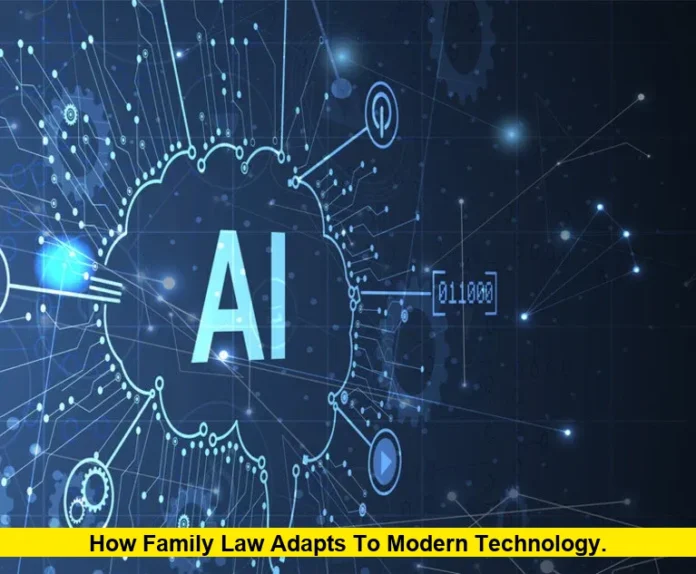How family law adapts to modern technology has reached a new milestone with the introduction of a rule requiring attorneys to disclose when artificial intelligence is used in family law proceedings. This update, which takes effect in January 2025, reflects the growing role of digital tools in shaping how courts and lawyers handle sensitive cases like divorce, custody, and support disputes.
California Courts Mandate AI Disclosure in Family Law
Starting in 2025, attorneys in California family courts must inform the court and opposing parties if they relied on AI tools for tasks such as document drafting, evidence review, or settlement analysis. This requirement is designed to promote fairness, accountability, and transparency in a legal system increasingly influenced by advanced technology.
The change comes as family law continues to evolve alongside technological innovation. Judges, lawyers, and clients now encounter digital systems at nearly every stage of proceedings, from e-filing and virtual hearings to online mediation platforms. Adding mandatory AI disclosure ensures that these tools are used responsibly.
Key Points Summary – Fast-Track Overview
| Change | Impact |
|---|---|
| AI usage disclosure required | Courts and parties know when AI is used |
| Focus on transparency | Builds trust in family law proceedings |
| Aligns with ethical standards | Supports accountability and fairness |
Balancing Efficiency with Accountability
The new disclosure requirement acknowledges that AI can streamline legal work. Attorneys increasingly use digital tools to draft pleadings, summarize complex evidence, or generate legal arguments more quickly. These tools save time and reduce costs for clients.
However, efficiency alone cannot outweigh the need for fairness. AI systems may sometimes generate errors or present information without proper context. By disclosing when such tools are used, attorneys help judges and opposing parties evaluate the reliability of documents and arguments.
How Technology Shapes Modern Family Law
This rule highlights a broader transformation in how family law adapts to modern technology. Over the past decade, legal systems have incorporated innovations such as:
- Virtual hearings allowing parents and guardians to attend remotely.
- Digital mediation platforms where separating couples negotiate agreements online.
- Electronic filing systems streamlining paperwork and access to court records.
- AI-powered research tools that speed up case preparation.
Together, these advancements reshape how families experience the justice system. Courts are increasingly digital spaces, and this latest AI rule reflects the importance of maintaining trust as technology becomes central.
Why This Rule Matters
The disclosure requirement is more than a technical adjustment; it marks a cultural shift in family law. It ensures:
- Judicial fairness – Courts can better assess evidence if they know AI played a role.
- Ethical accountability – Attorneys remain responsible for content created or influenced by AI.
- Public trust – Families can feel confident that decisions are not hidden behind opaque technologies.
These safeguards are especially vital in family law, where rulings impact children, finances, and relationships.
Looking Ahead
Legal experts expect other states to watch this development closely. If successful, similar AI disclosure rules may be introduced nationwide. Over time, they could become standard practice in all areas of law, not just family matters.
Family law has always adapted to changing social and technological realities. From paper-based filings to digital platforms, and now to artificial intelligence, the system continues to evolve. The new rule represents another step in ensuring that progress serves both efficiency and justice.
This is a pivotal moment in how family law adapts to modern technology—balancing innovation with transparency, and modernization with fairness.
Feel free to share your thoughts in the comments—how do you think technology should shape the future of family law?
FAQs
Q1: What must attorneys disclose under the new rule?
A1: They must state clearly if artificial intelligence tools were used in drafting documents, analyzing evidence, or preparing case strategies.
Q2: When does this rule take effect?
A2: The disclosure requirement begins in January 2025 for all California family law cases.
Q3: Why is AI disclosure important in family law?
A3: It ensures fairness, prevents hidden reliance on automated tools, and helps clients and courts trust the process.
Disclaimer: This article is for informational purposes only. It does not provide legal advice. For case-specific guidance, consult a qualified attorney.
